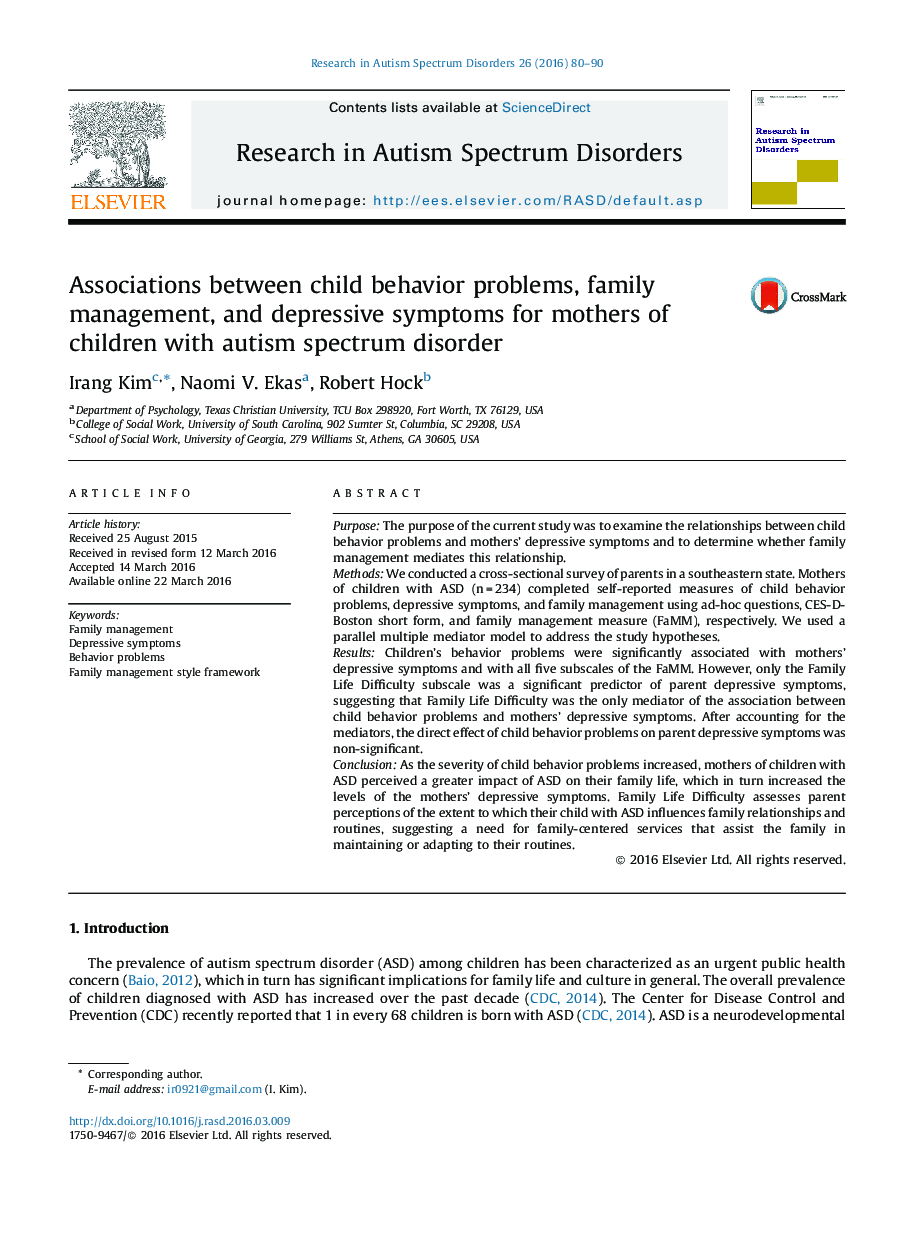| Article ID | Journal | Published Year | Pages | File Type |
|---|---|---|---|---|
| 369957 | Research in Autism Spectrum Disorders | 2016 | 11 Pages |
•We examine the relationships between child behavior problems, mothers depressive symptoms, and family management.•Family Management Style Framework was applied.•As the severity of child behavior problems increased, mothers of children with ASD perceived a greater impact of ASD on their family life.•Family life difffiulcites, in turn, increased the levels of the mothers depressive symptoms.
PurposeThe purpose of the current study was to examine the relationships between child behavior problems and mothers’ depressive symptoms and to determine whether family management mediates this relationship.MethodsWe conducted a cross-sectional survey of parents in a southeastern state. Mothers of children with ASD (n = 234) completed self-reported measures of child behavior problems, depressive symptoms, and family management using ad-hoc questions, CES-D-Boston short form, and family management measure (FaMM), respectively. We used a parallel multiple mediator model to address the study hypotheses.ResultsChildren’s behavior problems were significantly associated with mothers’ depressive symptoms and with all five subscales of the FaMM. However, only the Family Life Difficulty subscale was a significant predictor of parent depressive symptoms, suggesting that Family Life Difficulty was the only mediator of the association between child behavior problems and mothers’ depressive symptoms. After accounting for the mediators, the direct effect of child behavior problems on parent depressive symptoms was non-significant.ConclusionAs the severity of child behavior problems increased, mothers of children with ASD perceived a greater impact of ASD on their family life, which in turn increased the levels of the mothers’ depressive symptoms. Family Life Difficulty assesses parent perceptions of the extent to which their child with ASD influences family relationships and routines, suggesting a need for family-centered services that assist the family in maintaining or adapting to their routines.
